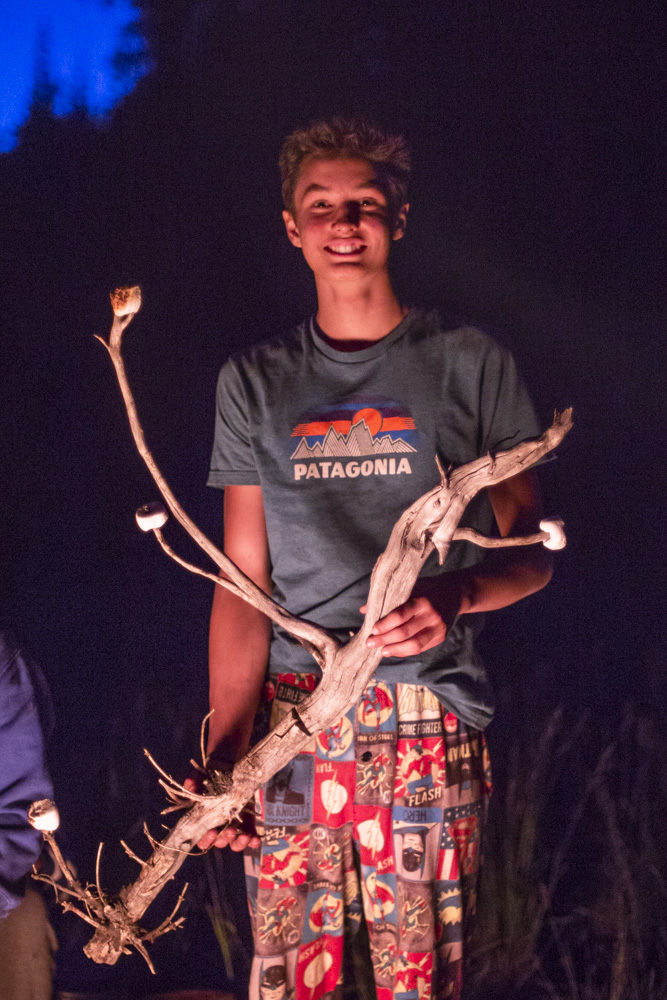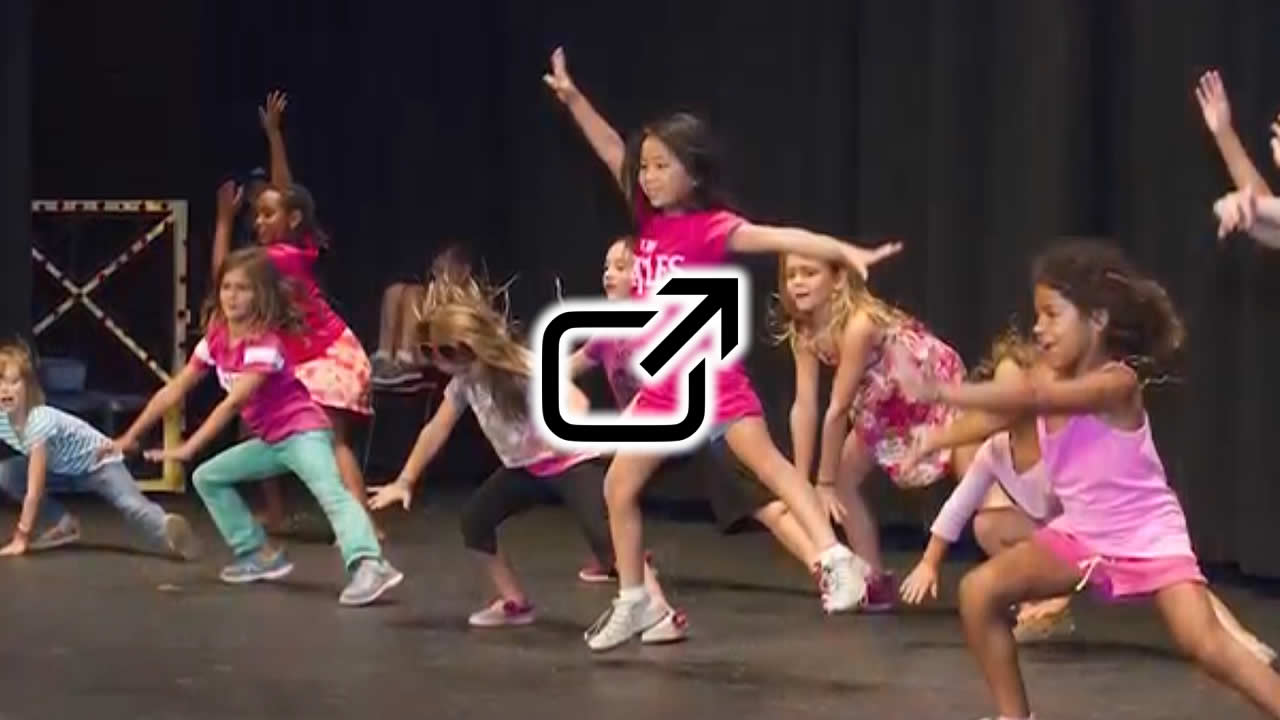How Summer Camp Helps Boys 12 to 13 Grow
 Summer camp can help your son develop critical life skills, particularly in social relations, empathy and understanding of others, and to build confidence through social interaction and skill building, to increase his resilience in the face of setbacks, and to help satisfy his need for independence by empowering him to have significant control over his day, all wrapped up in lots and lots of fun!
Summer camp can help your son develop critical life skills, particularly in social relations, empathy and understanding of others, and to build confidence through social interaction and skill building, to increase his resilience in the face of setbacks, and to help satisfy his need for independence by empowering him to have significant control over his day, all wrapped up in lots and lots of fun!
Understanding Your Son's Developmental Stage
As a parent of a boy between 12 and 13, you've seen your son grow from middle childhood to teenager. Children mature at different rates, but child development experts tell us that the beginning teens years are a time when some boys experience rapid growth and a change in appearance and voice, which can make them uncomfortable, whereas other boys who have not experienced such changes may feel uncomfortable precisely because they have not gone through the changes other boys have. They are very self-conscious and often equate how they perform in an activity with self-worth, which can discourage participation. But they are keen on skill acquisition and can be found practicing the same skill over and over and over again. Early teen boys often still think in black-and-white terms but are starting to move from concrete thinking to more abstract thinking. As they start to think in abstract terms, issues of justice, equality and fairness in how people are treated become more important. Boys in this age group start the process of becoming independent and reducing dependence on their parents. They often begin to challenge adult explanations in favor of finding their own answers and can become argumentative and test limits. They are generally no longer afraid to be away from their parents and begin to develop mature friendship skills. They tend to find that smaller groups are less intimidating. It is common to form cliques. The opinion of peers and the desire to be accepted by them becomes increasingly important. Though boys still prefer to socialize with other boys, they often become very interested in what the girls are doing. And as puberty takes a firm hold, their emotions begin down a bumpy road that lasts throughout adolescence.
Here's how summer camp can help your son develop age-appropriate skills:
Social Competence
 Summer camp can help your son build social competence. Your son will live and eat with other boys who are within a year of his age. Many, if not all, of the campers will likely be new to him. Meeting new kids and living in a close communal setting under the caring supervision of trained adults provides lots of opportunity for social interaction. This also supports two of the summer camp's essential values—tolerance and respect for all. If there's a bump along the way, there's an adult nearby to help your son work through the issue. Your son will also have the opportunity to select the activities he wants, allowing him to be with his friends and other boys with whom he wants to be friends.
Summer camp can help your son build social competence. Your son will live and eat with other boys who are within a year of his age. Many, if not all, of the campers will likely be new to him. Meeting new kids and living in a close communal setting under the caring supervision of trained adults provides lots of opportunity for social interaction. This also supports two of the summer camp's essential values—tolerance and respect for all. If there's a bump along the way, there's an adult nearby to help your son work through the issue. Your son will also have the opportunity to select the activities he wants, allowing him to be with his friends and other boys with whom he wants to be friends.
Empathy and Understanding
Summer camp can help build empathy and understanding of others. The campers with whom your son will live, eat, and play may not just be new to him, but they may come from a different state or even country and a very different background. For example, each summer we typically have some campers who come from across the U.S., and even from Europe and Asia. And even many of our counselors are here on an international cultural exchange visa. Getting to know people from different regions and backgrounds begins the process of understanding them, which in turn nurtures empathy. It's a fantastic opportunity for your son to ask himself how he'd feel in their shoes.
Independence
 Summer camp can help smooth the long road to independence. Particularly for a child on his first extended stay away from his parents, camp can help. When your son realizes he can have fun and make friends away from his parents, he gains a little independence. At camp, he is empowered to make key decisions about his day, including choosing the activities in which he participates and what to eat (though under the watchful eye of a caring adult). And at camp, he is called upon to contribute to his bunk group by helping tidy and clean their bunk and cleaning one of the summer camp's common areas each day. While this level of empowerment and contribution may seem insignificant to an adult, it is often the first time many early teen boys have had so much input on their day and is a great start on the road to becoming independent.
Summer camp can help smooth the long road to independence. Particularly for a child on his first extended stay away from his parents, camp can help. When your son realizes he can have fun and make friends away from his parents, he gains a little independence. At camp, he is empowered to make key decisions about his day, including choosing the activities in which he participates and what to eat (though under the watchful eye of a caring adult). And at camp, he is called upon to contribute to his bunk group by helping tidy and clean their bunk and cleaning one of the summer camp's common areas each day. While this level of empowerment and contribution may seem insignificant to an adult, it is often the first time many early teen boys have had so much input on their day and is a great start on the road to becoming independent.
Resilience
Resilience is the capacity to recover from a setback and is essential for a happy and successful adulthood. Who, after all, gets through life having never faced a setback? Summer camp can help build resilience. Summer camp, unlike school, is keenly focused on the social nature of everything it does, from activities, to bunk meetings, to meal time. And there are trained adults ready to assist with an opportunity to address a social challenge. But summer camp can help build resilience outside of the social setting as well. Take almost any skill-based activity, from arts and crafts to rock climbing, from archery to performing arts. There is usually a point at which acquiring that next, more advanced skill is difficult. Sometimes, one hits a plateau and it can feel like a failure. But when that person tries again and achieves that next level, their persistence is rewarded and their resilience grows.
Confidence
 Summer camp can help your son build confidence. This is particularly important at this stage of development when boys are so self-conscious. When anyone faces a challenge, especially one that's a little beyond his comfort zone, and then emerges on the other side successfully, he naturally gains confidence. He thinks, "Yeah, I can do that!" That holds true for being away from home for the first time, to making new friends, to acquiring new physical skills.
Summer camp can help your son build confidence. This is particularly important at this stage of development when boys are so self-conscious. When anyone faces a challenge, especially one that's a little beyond his comfort zone, and then emerges on the other side successfully, he naturally gains confidence. He thinks, "Yeah, I can do that!" That holds true for being away from home for the first time, to making new friends, to acquiring new physical skills.
Activity Design
Our summer camp's activities are designed with this developmental stage in mind. Campers choose the activities in which they participate so they can create an activity line up that meets their social need to be with friends, or their desire to build skills, or just to have fun. The activities are not restricted by age or gender, which presents yet another opportunity for developing empathy and understanding. (However, due to some activities' requirement for strength, stamina or foundational skill, they may be less populated with younger campers.) The summer camp follows the Challenge-by-Choice philosophy, which empowers the participant to determine how far to pursue an activity, with camp staff providing the encouragement and guidance. And because boys in this age range tend to internalize their self-worth with their performance, the focus is on your son's improvement rather than giving him a score or time or other ranking to compare against others. So, for example, he might be recognized for hitting more bulls eyes this turn on the archery range compared to his last turn. In essence, the summer camp focuses on non-competitive activities, but even where there's some aspect of competition, such as on the volleyball court, "winning" is non-consequential. The camp also encourages campers to give each other "put-ups" (as opposed to "put-downs") in recognition of accomplishing a goal the camper set for himself. This peer recognition is universally appreciated.
Boys 12-13 are starting their transition from childhood to adulthood. So let's work on empowering them now with these essential life skills and help them reach their full potential!



















